Jessica Helfand: Recently, we realized that while that we both take our roles fairly seriously as critics, we also both happen to be obsessed with reality TV. Why do you think that is?
Marvin Heiferman: I think we’re fascinated by which realities get acknowledged and then how they get packaged.
JH: For starters, I watched Adult Baby the other night on the National Geographic Channel (Taboo is the series) and I definitely think this qualifies as reality television: it's right up there with creepy hoarders and freaky eaters which, by the way, makes me think of Tod Browning's 1932 film about freaks — something which, in my opinion, has all the qualities of a good reality show. (Minus Bethenny Frankel of course.)
MH: Taboo is definitely out there. The borders that separate reportage from titillation, and documentary from fiction seem pretty porous. One episode, about guys who get off by dressing up as maids and then waiting on tables, made me wonder exactly what lessons we’re meant to learn on TLC (formerly The Learning Channel). The show’s finger-pointing style and content reminds me of another bizarro cult-movie classic, Mondo Cane (1962), and its equally weird shockumentary sequel, Mondo Pazzo. Speaking of worlds run amok, did you get hooked by Pregnant in Heels, one more show on Bravo show about the foibles of another over-entitled, demographic group — in this case, the overwhelmed mothers-to-be of New York’s Upper East Side?
JH: I don’t watch it, though I confess to being pretty addicted to anything that features medical oddity: TLC’s documentary on Mandy Sellars, widely known as The Woman with Giant Legs, is a perfect example. (I Didn’t Know I Was Pregnant — heartbreaking, but mostly absurd to the point of being comical — scares the living daylights out of our daughter.) But here’s my question: what is it about freakishness that makes us want to stare, and to what degree, if any, does that kind of myopic concentration contribute to the reality TV phenomenon? The minute that camera is pointed in someone's face for days on end, they become somehow freakish and end up the subject of obsessive prurient interest. For some reason, this reminds me of Michael Apted's Seven Up, and from there it's a quick hop to the Loud Family.
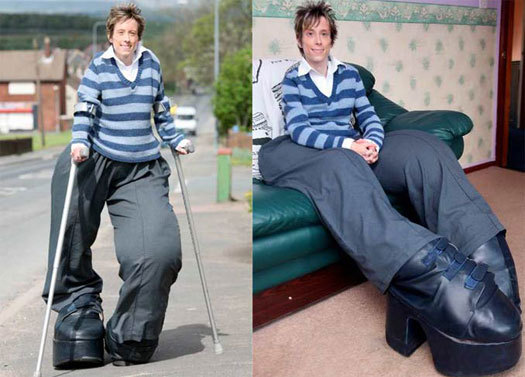
The Woman with Giant Legs, TLC
At the same time, so many of these reality TV shows are so formulaic now as to virtually homogenize the weirdness, yet we carry on watching anyway: the "real" housewives with their artificially enhanced anatomy, teetering on four-inch spike heels; or the apprentice bakers, chefs and fashion designers all lined up like children being scolded — who came up with these formulas, anyway, and why do we buy into them, do you think?
MH: I don’t think that things (or people) have to be freakish to make us want to look at them. Babies are neurologically wired to recognize and respond to facial features that appear in certain arrays. Reality TV has, at least for some adults, a similar hard-wired effect. It’s like gravity, hard to resist. Actually, I’m not as much roped in by outrageous plot lines these days, as I am fascinated with watching people on reality TV cope with being on TV and how quickly they learn to project the best and most entertaining version of themselves when the cameras are pointing their way.
Reality TV allows us to be entertained by and gives us permission to be critical of “people like us” — or, for that matter, people who are so not-like-us. With their reliably calculated casting (the snarky villains, preening beauties, people facing obstacles) and producer-controlled narratives, these shows encourage the practice of couch-based anthropology, dosing out regularly scheduled opportunities to parse and pass judgment on human nature. Even when shows get franchised and formulaic — there’s The Real Housewives of Atlanta, Orange County, New York, New Jersey, Washington DC, Beverly Hills and Miami; Top Chef, Top Chef Deserts and Top Chef Masters; American Idol, The Voice and soon the X-Factor; So You Think You Can Dance and Dancing with the Stars — there’s still something rivetingly primal and compelling about them. They’re about survival, power, fantasy, regeneration, hubris and in some cases, creativity. On every show, someone’s bound to be hustling, trying to prove something, get something, be somebody, find an audience. Since we all, to varying degrees, know what that’s about, we sit back and watch others go at it, rooting them on and evaluating what they do. (It sounds like I’m talking about porn, doesn’t it?)
JH: You forgot America's Got Talent — which though clearly plausible, sounds like an oxymoron (especially if you watch the auditions). This reminds me that there's something else about reality TV that continues to baffle me, and I think it has to do with a kind of celebration of banality. Supporters of the Tiger Mother often laugh at the degree to which Americans applaud when their children sneeze — and statistics support this position, which has American kids trailing, say, Chinese students in the paucity of their output on a scholastic level. Seems to me this sort of mindless engagement translates perfectly to reality television: in other words, once we start featuring people who eat chalk on TV, we're essentially applauding pretty useless behavior.
Not that coupon clipping is in and of itself useless, but Extreme Couponing did make my jaw drop: I watched it for the first time recently, only to see a woman spend upwards of 60 hours combing newspaper circulars in her neighborhood, showing up with four shopping carts at her local market, and purchasing over one thousand dollars of merchandise for just over twenty dollars. Though nobody would dare admit it, the people who "coupon" (yes, they use it like a verb, like scrapbooking) tend to look as though healthy eating is not their primary goal — and indeed, their loaded pantries are brimming with things like 40 boxes of cake mix, leading one to quickly conclude that extreme couponing may be thrifty, but it also leads to a kind of controlled hoarding: yes, they're gaming the system and saving money. No, they probably don't need 39 of those boxes of cake mix.
MH: When it comes to reality TV, maybe it’s best to accept — and, if you’re in a Warholian mood, embrace — the banal as a gateway to the interesting and even to the profound. What do all these shows — stories about hook-ups, competition, tiny people, over-determined cupcakes, raging egos and compulsions and makeovers of things both alive and inanimate — tell us? That we are as complex as we are predictable. Reality TV, now 20 years into the phenomenon, keeps going strong because it’s cheap to produce and we never seem to tire of “human interest” stories that remind us what makes us tick by encouraging both voyeurism and empathy. And given the economy, there’s probably something to be said for shows like Jersey Shore that suggest that success comes to those who leverage their assets and opportunities and can cash out quickly. That said, have you been watching The Bachelorette? That show, with its cavalcade of ripped-bodied camera sucks, elbowing each other as ardently for screen time as for love, is a train wreck over-accessorized with candles and rose petals. I watch every Monday, when it’s on.
JH: It does make you wonder what Warhol — or, for that matter, Arbus or Duchamp or Dali (or for that matter, Capote!) would have made of all of this? I have not been watching The Bachelorette, but I'm totally down with the others. My personal drug of choice, currently, is Toddlers & Tiaras — a show in which the stage mothers make Mama Rose look about as interesting as a wad of dryer lint. It's actually painful watching them miming their kids' routines, complete with overly-dramatized sashaying and cutesy curtseys. (And apparently, this isn't just an American phenomenon.) The show goes to great lengths to include establishing shots of the homes from which these families hail, which demonstrates the degree to which these parents live for the most part in extremely modest circumstances, yet spend small fortunes to spin their wee ones into what they've dubbed "the total package" — with "glitz" hair and fake nails, professional make-up and spray tans, and most bizarrely, something called "flippers" (fake teeth!) — all of this for children for whom puberty remains a fairly distant ideal. It's all of course hugely disturbing for anyone who remembers the Jon Benet Ramsey tragedy, yet here, as in so much of pop culture, viewers tend to have a particularly virulent strain of selective amnesia. How else to explain the idea of televising children — still in diapers — wearing falsies? (No, I am not making this up.)
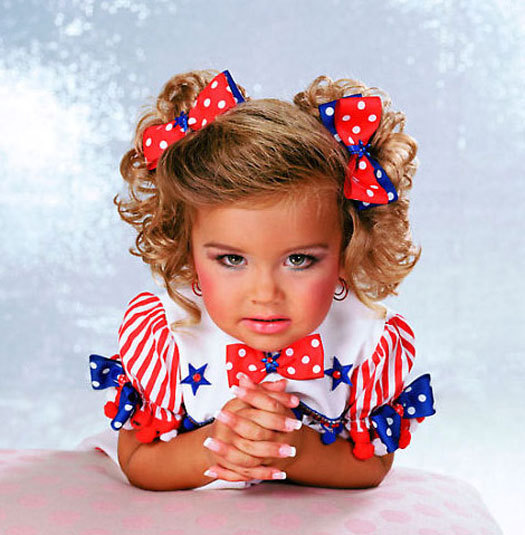
Small girl in pageant mode, including manicure, from Susan Anderson's photo series "High Glitz"
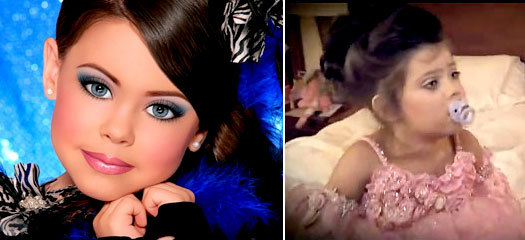
"Mackenzie", in full-glitz makeup (left) and in her motel room, before a pageant, from Toddlers & Tiaras, TLC
MH: One of the tropes of reality TV shows is the promise and tracking of transformation. With Toddlers & Tiaras, you watch twisted parents willfully mold their preschoolers into mini Mae Wests and Anna Nicole Smiths. Less psychologically lethal is something like HGTV’s Curb Appeal (I’m a sucker for that one, too), where front doors, trim and shutters get painted in contrasting colors, dessicated shrubs get replaced with flowering perennials, and judgmental neighbors breathe a sigh of relief once the down-scale house on their block gets freshened up.
But the makeover show that put a meteor-sized dent in my consciousness was The Swan, back in 2004. It was a mesmerizing and nightmarish on all sorts of levels, from the political to the aesthetic. Each week, two women who sent in videos about how much they hated themselves were then selected to (a) be worked over by plastic surgeons, cosmetic dentists, trainers, hairdressers, make-up artists, stylists and psychologists and then (b) compete against each other to see who’d been remodeled most successfully. While all that work was being done on them, “contestants” were sequestered and denied access to any reflective surfaces that might allow them to catch a glimpse of what their battalion of Pygmalions hath wrought.
At the end of the show, once they’d recovered from all that physical work done on/to them and (for those who freaked out during the process) gotten some therapy, each woman stood, gowned and bejeweled, in front of a curtained, full-length mirror for the stunningly tense moment known as “The Reveal”. As the drapes slowly parted and rose, each woman — surrounded by her band of shape-shifters — got to see herself, literally, anew. Tears of joy, shock and incomprehension frequently followed. I kept watching because I kept trying to imagine what that moment might feel like, seeing yourself for the first time, re-formatted as someone or something else. Because the same team of Hollywood and Vegas-based renovators repeatedly worked on many of the participants, they tended to end up looking alike — same nose, same implants, same teeth, same hair. That made things even scarier, a beauty pageant and horror show, a mash-up of Frankenstein, Queen For A Day, The Twilight Zone and The Stepford Wives. More than once, the young children of the former ugly ducklings failed to recognize their own mothers when they were re-united.

Before and After Makeovers from The Swan, Fox Television Network
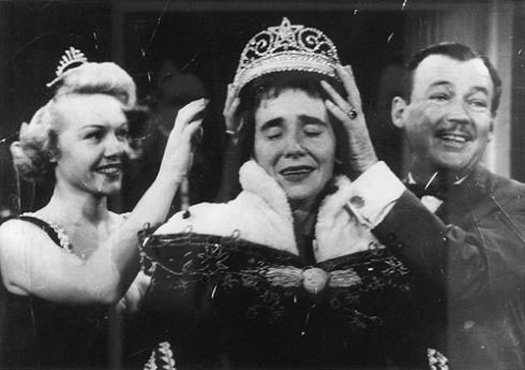
Queen for a Day, which began on the radio and later ran on the NBC Television Network from 1956 to 1960 before moving to ABC in the mid-sixties
JH: Curb Appeal is, I think, engrossing to anyone who has ever lived through a construction project: after all, could there be anything more gratifying than seeing a face-lift start-to-finish in approximately 27 minutes? (I call this real estate porn.) As for the personal renovation crusade that debuted with The Swan, it may owe a small debt of gratitude to Bravo's series Queer Eye for the Straight Guy (which dates back to 2003). But the makeover program's most recent reincarnation is in TLC's What Not to Wear: like The Swan, it relies on a "big reveal" model, but this incarnation is even more insidious. Here, an innocent person is proposed by his or her friends or co-workers because of their bad wardrobe choices. The person is then "outed" and must suffer the indignity of watching videos of being stalked for weeks prior, usually wearing mis-matched and outmoded clothing. In the next scene, the hosts go through the victim's closet and jettison about 90 percent of their clothes. In exchange, a five-thousand-dollar gift card is offered, and there is shopping and modeling and a haircut and a makeup lesson. Sometimes, there are tears of joy. Mostly, there are mix-and-match separates.
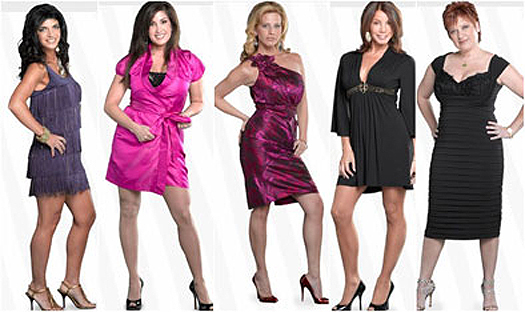
The Real Housewives of New Jersey, Bravo
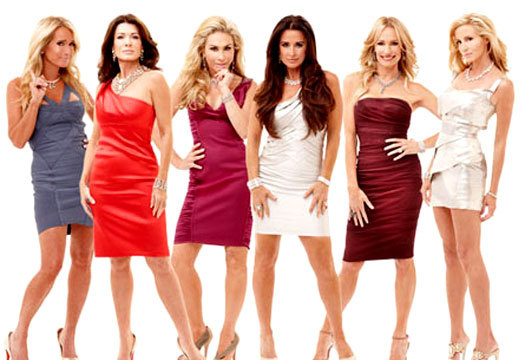
The Real Housewives of Beverly Hills, Bravo
On the topic of tears, though, no conversation about reality TV would be complete without a look at the Real Housewives franchise which I appreciate all the more since seeing Jimmy Fallon's version. (If you haven't seen it, this is a must.) Obviously, there is nothing very "real" at all about women who slurp from oversized goblets of Chardonnay and live in gargantuan houses and have chauffeurs at the ready and personal hairstylists in their bedrooms. There are also lots of low-cut dresses and enhanced anatomical features and huge displays of flowers in every room. When they aren't on camera making somber remarks about the minutiae of their lives ("Money is what I have, not who I am!") they tend to spend inordinate amounts of time planning dinners and parties and fashion fundraisers and excursions to Las Vegas, just like every other real housewife on the planet. (Not.)
Oddly, too, they spend most of their time with the other housewives, even though they have perfectly nice families on-site. (These consist of husbands and children and dogs, all cleverly positioned in the background, like the flowers and the cars.) Mostly, they seem to have too much spending money, too much time on their hands, and way too many handbags: and maybe this is precisely the point. Do viewers envy the excess? Do they crave the catty companionship? Is it the pettiness? The botox? Or do they just hunger for the dramatic loop of sassiness and stupidity? Seems to me that watching Teresa flip a table is almost as spellbinding as watching Camille try on dresses, and the crumbling train wreck of their lives (bankruptcy for Teresa, divorce for Camille) lends a nice little bit of juicy schadenfreude to the whole endeavor. And I'm beginning to think that where reality TV is concerned, that's the whole point.


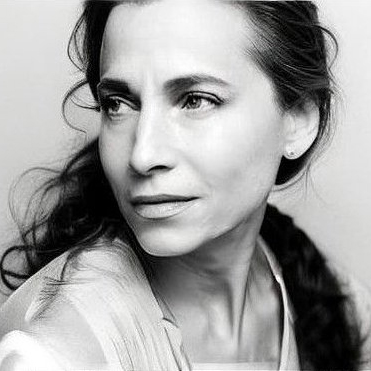
Comments [4]
It's true that reality TV has its own internal logic of production and its own reasons for appealing to audiences--as Helfand and Heiferman show--and there are other technological or cultural factors that encouraged or reinforced the trend, like the growth of cable-only networks and the Internet, or the need to fill more and more hours of the day with content to attract viewers whose eyeballs one can rent to advertisers. But the desire for profit unimpeded by organized professionals asking for their share of entertainment profits shouldn't be overlooked.
*Not that there isn't a good deal of framing, prompting, provocation, and careful editing going on in reality TV, of course.
07.11.11
11:16
If you’re in a Warholian mood, you can make your own Screen Test here.
07.11.11
10:22
07.12.11
07:52
07.13.11
05:11